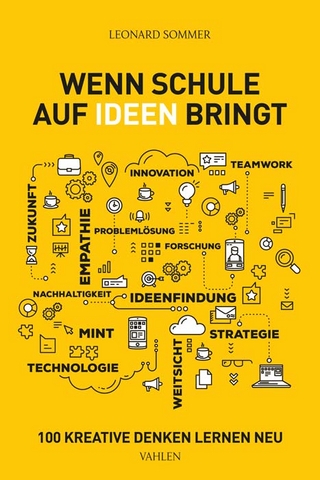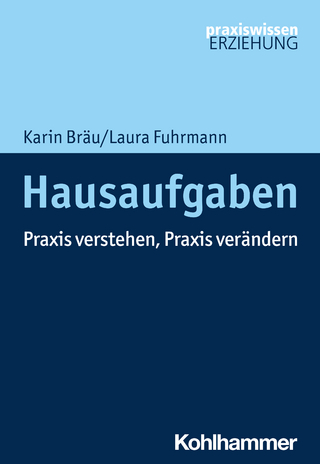
Failure to Disrupt
Why Technology Alone Can’t Transform Education
Seiten
2020
Harvard University Press (Verlag)
978-0-674-08904-4 (ISBN)
Harvard University Press (Verlag)
978-0-674-08904-4 (ISBN)
- Titel ist leider vergriffen;
keine Neuauflage - Artikel merken
From MOOCs to autograders to computerized tutors, technologies designed for large-scale learning have never lived up to the hype. Despite its promise, Justin Reich shows that technology cannot transform our classrooms on its own. Successful education reform, he concludes, will focus on incremental institutional change, not the next killer app.
A leader in educational technology separates truth from hype, explaining what tech can—and can’t—do to transform our classrooms.
Proponents of large-scale learning have boldly promised that technology can disrupt traditional approaches to schooling, radically accelerating learning and democratizing education. Much-publicized experiments, often underwritten by Silicon Valley entrepreneurs, have been launched at elite universities and in elementary schools in the poorest neighborhoods. Such was the excitement that, in 2012, the New York Times declared the “year of the MOOC.” Less than a decade later, that pronouncement seems premature.
In Failure to Disrupt: Why Technology Alone Can’t Transform Education, Justin Reich delivers a sobering report card on the latest supposedly transformative educational technologies. Reich takes readers on a tour of MOOCs, autograders, computerized “intelligent tutors,” and other educational technologies whose problems and paradoxes have bedeviled educators. Learning technologies—even those that are free to access—often provide the greatest benefit to affluent students and do little to combat growing inequality in education. And institutions and investors often favor programs that scale up quickly, but at the expense of true innovation. It turns out that technology cannot by itself disrupt education or provide shortcuts past the hard road of institutional change.
Technology does have a crucial role to play in the future of education, Reich concludes. We still need new teaching tools, and classroom experimentation should be encouraged. But successful reform efforts will focus on incremental improvements, not the next killer app.
A leader in educational technology separates truth from hype, explaining what tech can—and can’t—do to transform our classrooms.
Proponents of large-scale learning have boldly promised that technology can disrupt traditional approaches to schooling, radically accelerating learning and democratizing education. Much-publicized experiments, often underwritten by Silicon Valley entrepreneurs, have been launched at elite universities and in elementary schools in the poorest neighborhoods. Such was the excitement that, in 2012, the New York Times declared the “year of the MOOC.” Less than a decade later, that pronouncement seems premature.
In Failure to Disrupt: Why Technology Alone Can’t Transform Education, Justin Reich delivers a sobering report card on the latest supposedly transformative educational technologies. Reich takes readers on a tour of MOOCs, autograders, computerized “intelligent tutors,” and other educational technologies whose problems and paradoxes have bedeviled educators. Learning technologies—even those that are free to access—often provide the greatest benefit to affluent students and do little to combat growing inequality in education. And institutions and investors often favor programs that scale up quickly, but at the expense of true innovation. It turns out that technology cannot by itself disrupt education or provide shortcuts past the hard road of institutional change.
Technology does have a crucial role to play in the future of education, Reich concludes. We still need new teaching tools, and classroom experimentation should be encouraged. But successful reform efforts will focus on incremental improvements, not the next killer app.
Justin Reich is Mitsui Career Development Professor of Comparative Media Studies and Director of the Teaching Systems Lab at MIT. He is the host of the TeachLab podcast and has written about education and technology for Education Week, New Yorker, The Atlantic, Washington Post, and Science.
| Erscheinungsdatum | 28.09.2020 |
|---|---|
| Verlagsort | Cambridge, Mass |
| Sprache | englisch |
| Maße | 140 x 210 mm |
| Themenwelt | Sozialwissenschaften ► Pädagogik |
| Technik | |
| ISBN-10 | 0-674-08904-9 / 0674089049 |
| ISBN-13 | 978-0-674-08904-4 / 9780674089044 |
| Zustand | Neuware |
| Haben Sie eine Frage zum Produkt? |
Mehr entdecken
aus dem Bereich
aus dem Bereich
100 Kreative denken Lernen neu
Buch | Softcover (2023)
Franz Vahlen (Verlag)
59,00 €
Wissenschaftssprache in Regeln und Übungen
Buch | Softcover (2022)
UTB (Verlag)
15,00 €


